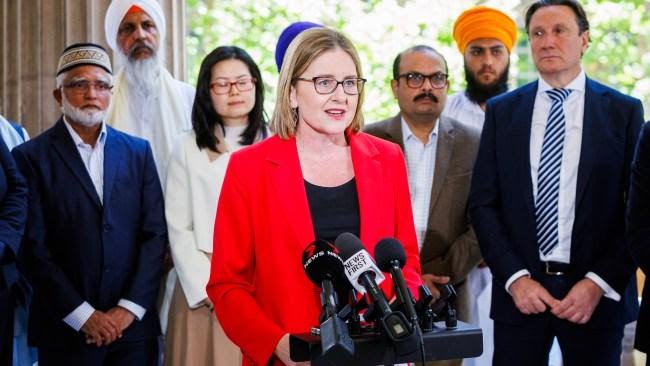The Victorian government has announced plans to introduce stronger anti-vilification laws in response to the recent cancellation of the Myer Christmas Windows event, which was disrupted by a planned pro-Palestine protest.
Event Disruption and Government Response
The long-standing Melbourne tradition of unveiling Myer’s Christmas Windows was called off, sparking a robust political response. Pro-Palestine activists from the group Disrupt Wars had intended to protest at the event, citing their satisfaction when Myer decided to cancel the celebrations due to safety concerns.
Victorian Premier Jacinta Allan, speaking alongside local religious leaders, expressed her dissatisfaction with the situation and emphasized that the event should be a source of joy for individuals from diverse backgrounds. She stated, “Those who seek to spread hate and division have no place in Victoria.”
Stronger Laws to Enhance Social Cohesion
The proposed legislation aims to bolster social cohesion and equip law enforcement with additional tools to handle protests effectively. “We’re committed to winding back this culture of division and putting an end to vilification and hate,” Premier Allan said, signaling her administration’s dedication to fast-tracking these legal changes.
Opposition Criticism and Political Debate
The proposed changes have ignited political debate, with opposition leaders accusing the government of maintaining weak laws and failing to control city disruptions. Opposition Leader John Pesutto criticized Premier Allan’s response, stating, “It’s unacceptable that the Premier is unwilling to act.”
The opposition called for an approach similar to New South Wales, where a permit system regulates demonstration groups, although Premier Allan dismissed this suggestion, questioning the practicality of requiring permits for all protest activities.
Historical Context and Current Political Climate
The Andrews Labor Government had previously repealed stringent move-on laws in 2015, which granted police broad powers to disperse protests. This decision has been a point of contention, with opposition figures like David Southwick arguing that the absence of such laws has emboldened disruptive protests.
Next Steps and Legislative Process
The strengthened anti-vilification laws will undergo parliamentary scrutiny and public consultation before potentially being enacted in February 2025. Meanwhile, Victoria Police remain prepared to ensure public safety and manage any protests that may transpire.

